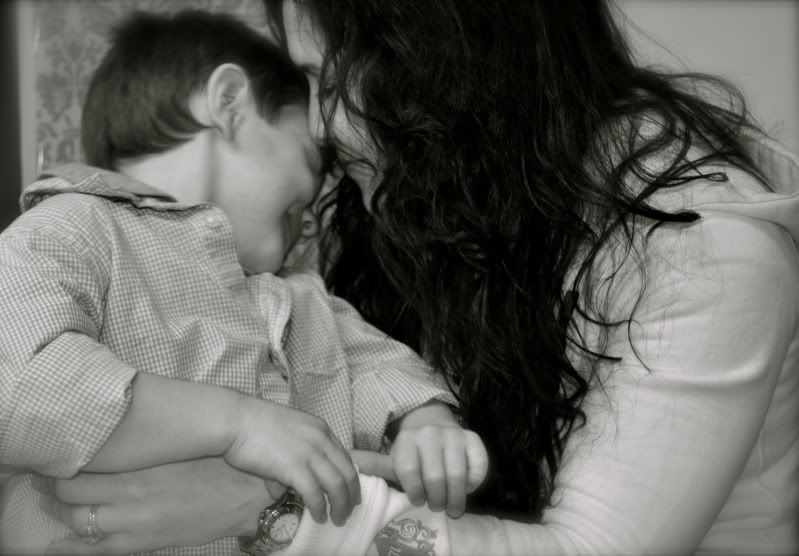It is never too late to say sorry.
Tuesday, March 8, 2011
{ Under Construction: the soul }
:: Put yourself in the position of the one who has hurt you ::
A long time ago you hurt someone, whether in a large or a petty way,
you did or said something that caused them pain. When you see this person today, how do you feel?
Guilty? Awkward? Uncomfortable?
You ask yourself: Do they remember? Do they still hurt?
Are they still damaged by what you did to them?
Imagine that a person you once hurt badly comes up to you, smiles, and quietly takes you to one side.
No one else is there to overhear what you both say; this is between the two of you.
It might be difficult to start off. One of you might say,
"Hey, we keep bumping into each other."
The other might say, "How long have we known each other now?"
It might be awkward for a little while.
But if you sense that the other person is genuinely reaching out to you, and you do the same,
you begin to find a place to meet.
If you rebuff someone who is willing to give you forgiveness,
you are setting the old grievance in concrete;
you are making it much, much worse.
Do you really want to do that?
Imagine now that this person says, "You know it took me a long time to let go of what you said
to me, all those years ago. Do you remember?"
And you feel deeply uncomfortable, and embarrassed, and guilty, and perhaps
a little angry that the other person had brought this up.
But then they say something like, "That was a long time ago,
and I've been stupid to hang on to it for so long."
What do you say? Do you laugh? Do you shrug it off? Do you start finding excuses
for the harmful things you once said, justifying them?
Or
do you say,
"Whatever reasons I thought I might have had at the time,
I must have really hurt you when I said that. Is it too late to say 'Sorry?'
It is never too late to say sorry.
If the person you hurt accepts your apology and smiles and says,
"Why don't we leave that in the past, where it belongs?
Life's too short to hold on to old grudges,"
then meet them in the middle.
It doesn't matter if they don't actually use the words,
"I forgive you."
Accept the essence of their forgiveness.
Now, how do you feel?
Relieved? At peace? More calm? More relaxed?
And how do they feel?
Whichever of the two people you are in the situation just described,
try to put yourself in the other person's shoes.
If it was difficult for you to apologize, or to forgive,
then it was just as difficult for the other person to forgive, or to apologize.
Recognize the effort that the other person has made, and acknowledge it.
One of you might say of the other, "That can't have been easy, after all this time."
It isn't easy to apologize, or to forgive. You need to make some movement yourself.
You need to leave openings for the other person. You need to help each other,
if you are to reach the goal that will heal you both.
In reaching this goal, you will have created a new bond
of understanding and cooperation between you.
Forgiveness Heals.
Forgiveness
heals the friendship and relationships
between people.
Forgiveness
heals the people you have forgiven.
Forgiveness
heals the person who forgives.
{spiritual paths
forgiveness
Jay Vickers}










